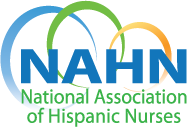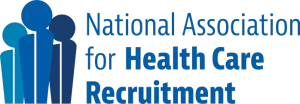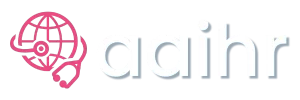The RN’s practice is guided by the ANA Standard for Professional Nurse and Code of Ethics. The RN has knowledge of professional nursing principles, practices, concepts, and procedures as applied to the care of the patient population served. The RN records patients’ medical history and symptoms help perform diagnostic tests and analyze results, operate medical equipment, administer treatment and medications, and help with patient follow-up and rehabilitation. The RN establishes a care plan or contributes to an existing plan. The plan may include activities, such as administering medication, including careful checking of dosages and avoiding interactions; starting, maintaining, and discontinuing intravenous (IV) lines for fluid, medication, blood, and blood products; administering therapies and treatments; observing the patient and recording those observations; and consulting with physicians and other healthcare clinicians. The RN teaches patients and their families how to manage their illnesses or injuries, explain post-treatment and home care needs; diet, nutrition, and exercise programs; and self-administration of medication and therapy. The RN provides direction to licensed practical nurses and nursing aides regarding patient care and delegates when appropriate. The RN supports efforts to advance clinical knowledge and skills. The RN precepts new hire staff and students. The RN assists the staff and students to seek and complete the tasks required to complete their competency skills. The RN continues to enhance their knowledge in the nursing management and care of patient problems and conditions as required. The RN may continue to improve the patients experience, clinical outcomes and works to promote a healthy work environment. Nursing practices theory based nursing that is evidenced based utilizing a Shared Governance model for decision-making. All RN staff who have direct responsibility for the care of stroke patients must have knowledge of: Stroke symptoms and warning signs, Protocols and pathways used to identify, evaluate and management of stroke patients, NIHSS and Modified Rankin Stroke scales, Stroke Alert activation and protocol, Stoke quality indicators, Available stroke patient education materials and community resources, Educational requirements, and Stroke Center website resources. Possess the knowledge of how to collect health data in a systematic and ongoing manner, prioritizing data collection as determined by the patient’s immediate condition or needs, and involving the family. Analyzes the assessment data in determining diagnoses, and utilize the nursing diagnosis to develop, implement, evaluate and revise an appropriate patient plan of care that is family centered, developmentally and age-appropriate, and culturally relevant. Identifies expected outcomes individualized to the patient and their specific health problems. Develops plans of care that are individualized to the patient’s condition or needs, reflecting current nursing practice that is evidence-based, providing for continuity of care, and are family centered. Implements interventions in the plan of care. Initiates treatments, medications, emergency and resuscitative measures based on appropriate utilization of standing orders, policies and procedures. Provides nursing care to meet the physical, emotional, spiritual, and social-cultural needs of the patient and family utilizing a family-centered approach to care delivery. Evaluates the patient’s progress toward attainment of outcomes. Documents observations, nursing interventions, therapeutic measures, multi-systems monitoring data, and other data relevant to the patient’s care in a retrievable form. Provides ongoing evaluation of the quality and effectiveness of the care plan to ensure that they maintain and enhance patient outcomes that promote the delivery of cost-effective high quality healthcare. Evaluates one’s own nursing practice in relation to professional practice standards and relevant statutes and regulations of the system and department policies and maintains current knowledge in nursing practice. Systematically evaluates the quality and effectiveness of nursing practice. Integrates ethical principles in all aspects of practice. Enhances knowledge of culture and diversity needs for specific populations. Collaborates with others in the practice of nursing professional development at the institutional, local, regional and state levels. as colleagues. Interacts with and contributes to the professional development of peers and other health care providers through positive role-modeling, fostering peer relationships, and participating in preceptor and/or mentor programs thereby creating an environment for quality practice. Collaborates with members of the multidisciplinary team in assessing, planning, implementing and evaluating patient care delivery. Collaborates with the patient, family and other health care providers in providing patient care. Develops and evaluates standards of care for patients that are evidence-based. Identifies changes that should be made in nursing practice using an evidence-based approach and facilitating the initiation of, adoption of, and adaptation to change. Participates in and uses evidence-based research to identify strategies for improving nursing practice, and patient outcomes. Designs, creates, and applies research by supporting the integration of research into practice fostering the use of systematic evaluative research with regard to clinical, educational, and managerial data. Considers factors related to safety, effectiveness, and cost in planning and delivering patient care by utilizing all resources effectively and efficiently.
RN TRAVELER – CVOR
Jobgraze
Roles Responsibility
Record patients' medical history and symptoms, Perform diagnostic tests, Analyze results, Operate medical equipment, Administer treatment and medications, Help with patient follow-up and rehabilitation, Establish care plan, Contribute to existing plan, Administer medication, Check dosages and avoid interactions, Start, maintain, and discontinue IV lines, Administer therapies and treatments, Observe patients, Record observations, Consult with physicians and healthcare clinicians, Teach patients and families, Manage illnesses or injuries, Explain post-treatment and home care needs, Provide diet, nutrition, and exercise programs, Teach self-administration of medication and therapy, Provide direction to LPNs and nursing aides, Support clinical knowledge and skills, Precept new hire staff and students, Enhance knowledge in nursing management and patient care, Improve patient experience and outcomes, Promote a healthy work environment, Collect health data, Analyze assessment data, Develop, implement, evaluate, and revise patient care plans, Identify expected outcomes, Develop individualized plans of care, Implement interventions, Initiate treatments and medications, Provide nursing care, Evaluate patient progress, Document observations and interventions, Provide ongoing evaluation of care plan, Evaluate own nursing practice, Integrate ethical principles, Enhance knowledge of culture and diversity needs, Collaborate in nursing professional development, Participate in multidisciplinary team care delivery, Develop and evaluate standards of care, Identify changes in nursing practice, Participate in evidence-based research, Consider safety, effectiveness, and cost in care delivery. Desired Qualification
ADN Associate Degree in Nursing, Other Graduate from an accredited NLN/CCNE institution Type
Permanent
Location
United States, Phoenix, AZ, 85260 








